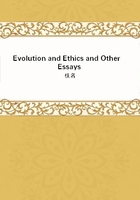
第64章
Mr. Booth has pithily characterized certain benevolent schemes as doing sixpennyworth of good and a shilling's worth of harm. I grieve to say that, in my opinion, the definition exactly fits his own project. Few social evils are of greater magnitude than uninstructed and unchastened religious fanaticism; no personal habit more surely degrades the conscience and the intellect than blind and unhesitating obedience to unlimited authority. Undoubtedly, harlotry and intemperance are sore evils, and starvation is hard to bear, or even to know of; but the prostitution of the mind, the soddening of the conscience, the dwarfing of manhood are worse calamities. It is a greater evil to have the intellect of a nation put down by organized fanaticism; to see its political and industrial affairs at the mercy of a despot whose chief thought is to make that fanaticism prevail; to watch the degradation of men, who should feel themselves individually responsible for their own and their country's fates, to mere brute instruments, ready to the hand of a master for any use to which he may put them.
But that is the end to which, in my opinion, all such organizations as that to which kindly people, who do not look to the consequences of their acts, are now giving their thousands, inevitably tend. Unless clear proof that I am wrong is furnished, another thousand shall not be added by my instrumentality.
I am, Sir, your obedient servant, T. H. Huxley.
An authoritative contemporary historian, Matthew Paris, writes thus of the Minorite, or Franciscan, Friars in England in 1235, just nine years after the death of Francis of Assisi:-,"At this time some of the Minorite brethren, as well as some of the Order of Preachers, unmindful of their profession and the restrictions of their order, impudently entered the territories of some noble monasteries, under pretense of fulfilling their duties of preaching, as if intending to depart after preaching the next day. Under pretence of sickness, or on some other pretext, however, they remained, and, constructing an altar of wood, they placed on it a consecrated stone altar, which they had brought with them, and clandestinely and in a low voice performed mass, and even received the confessions of many of the parishioners, to the prejudice of the priests. And if by chance they were not satisfied with this, they broke forth in insults and threats, reviling every other order except their own, and asserting that all the rest were doomed to damnation, and that they would not spare the soles of their feet till they had exhausted the wealth of their opposers, however great it might be. The religious men, therefore, gave way to them in many points, yielding to avoid scandal, and offending those in power. For they were the councillors and messengers of the nobles, and even secretaries of the Pope, and therefore obtained much secular favour. Some, however, finding themselves opposed by the Court of Rome, were restrained by obvious reasons, and went away in confusion; for the Supreme Pontiff, with a scowling look, said to them, 'What means this, my brethren? To what lengths are you going? Have you not professed voluntary poverty, and that you would traverse towns and castles and distant places, as the case required, barefooted and unostentatiously, in order to preach the word of God in all humility? And do you now presume to usurp these estates to yourselves against the will of the lords of these fees?
Your religion appears to be in a great measure dying away, and your doctrines to be confuted."
Under date of 1243, Matthew writes:-,"For three or four hundred years or more the monastic order did not hasten to destruction so quickly as their order [Minorites and Preachers] of whom now the brothers, twenty-four years having scarcely elapsed, had first built in England dwellings which rivalled regal palaces in height. These are they who daily expose to view their inestimable treasures, in enlarging their sumptuous edifices, and erecting lofty walls, thereby impudently transgressing the limits of their original poverty and violating the basis of their religion, according to the prophecy of German Hildegarde. When noblemen and rich men are at the point of death, whom they know to be possessed of great riches, they, in their love of gain, diligently urge them, to the injury and loss of the ordinary pastors, and extort confessions and hidden wills, lauding themselves and their own order only, and placing themselves before all others. So no faithful man now believes he can be saved, except he is directed by the counsels of the Preachers and Minorites."--Matthew Paris's English History. Translated by the Rev. J. A. Giles, 1889, Vol. I.